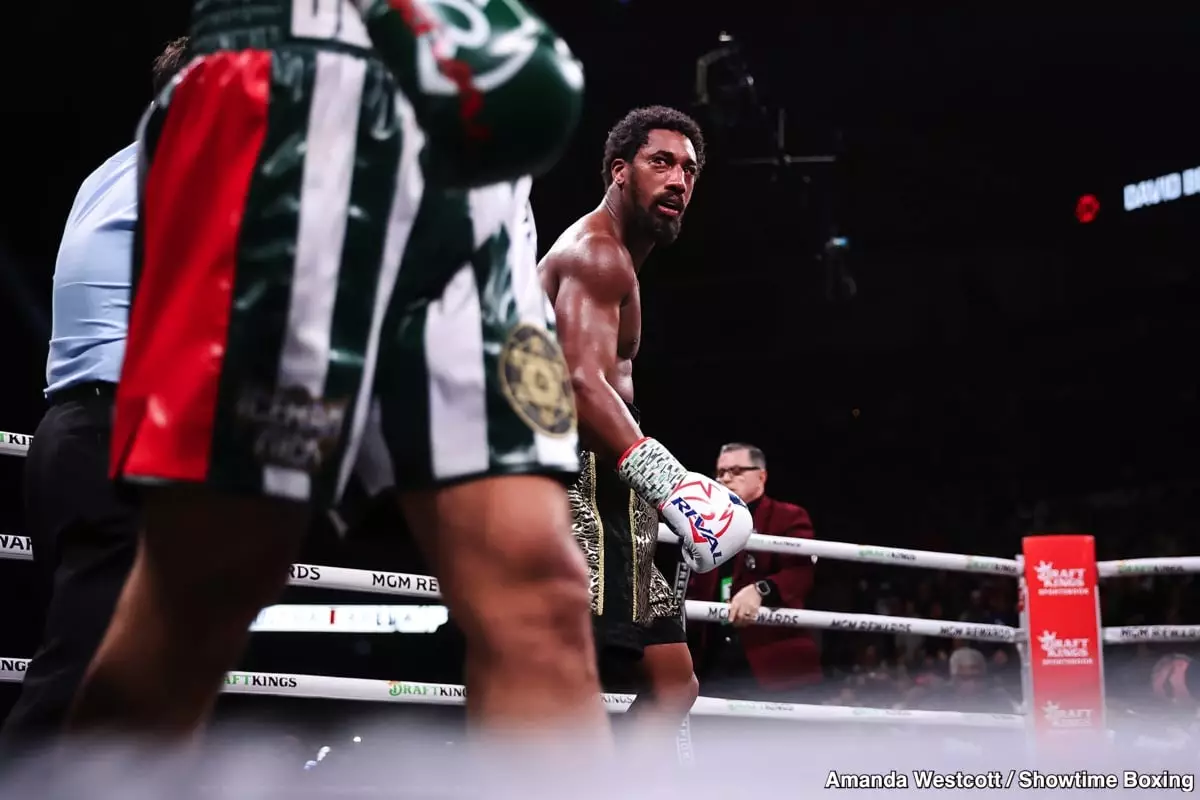Demetrius Andrade, a once-promising figure in professional boxing, finds himself navigating a complex web of public judgment and personal ambition. Following his defeat to David Benavidez, dubbed ‘The Mexican Monster,’ Andrade has faced waves of criticism from fans who question his legacy and career choices. Despite this scrutiny, Andrade insists that his pursuit of high-caliber opponents has been genuine over the years. What stands out in his narrative is the acknowledgment that many elite fighters have actively avoided bouts with him, which has left his career trajectory unsettled.
Andrade’s assertion that top fighters—such as Canelo Alvarez, Gennadiy Golovkin, Jermall Charlo, and Billy Joe Saunders—have shunned him invites a broader conversation about the dynamics of professional boxing. In a sport where matchups can be intricately influenced by business decisions, Andrade’s challenges highlight a systemic issue. Fighters often avoid risky bouts that could jeopardize their rankings, and Andrade has unfortunately become a casualty of this mindset. His bout against the much younger 26-year-old Benavidez emphasizes how size disparities can drastically impact the outcome, raising questions about the ethics of matchmaking in professional boxing.
The Heavy Burden of Size Disparity
The sheer physicality displayed by Benavidez during their fight on November 25, 2023, not only affected Andrade’s performance but also shed light on a pressing issue in the sport: weight classes. Benavidez rehydrated to an imposing size, leaving Andrade at a significant disadvantage. Andrade himself noted that Benavidez appeared cruiserweight-level after rehydrating, which casts doubt on the rationale behind pits like these. This fight, therefore, was not merely a contest of skill but a stark demonstration of how misleading matchups can distort the narrative of a fighter’s career.
Andrade’s loss, while painful, also acted as a catalyst for contemplation regarding his management decisions. He expressed a yearning to reclaim his position as a premier fighter, but the unaffordable absences from the ring, coupled with a lack of suitable opponents, have hindered his comeback. Lack of decisive action following defeat is particularly detrimental for fighters in their mid-30s, where career longevity is already in question.
Lessons in Resilience and Strategic Recalibration
Reflecting on his current predicament, Andrade recognizes the necessity for robust management and strategic fighting styles. The past year of inactivity emphasizes the importance of continual engagement in the ring. Even champions like Andrade must actively seek opportunities rather than waiting for them to materialize. The delay in his return to the squared circle has most certainly affected public perception and potentially stunted his career momentum.
Furthermore, Andrade’s previous partnership with promoter Eddie Hearn proved insufficient as the matches did not elevate his status. Moving forward, Andrade must reassess his approach, aiming for fights that leverage both skill and tactic—while simultaneously managing public expectations. His resilience in the face of adversity will define not only his future bouts but also his legacy within the sport of boxing.
Demetrius Andrade’s journey serves as a microcosm of the broader challenges faced by professional fighters. As he looks to navigate the turbulent waters of his career, there is a pressing need for strategic foresight, engagement with high-caliber opponents, and a renewed sense of urgency to reclaim his place among boxing’s elite.


Leave a Reply